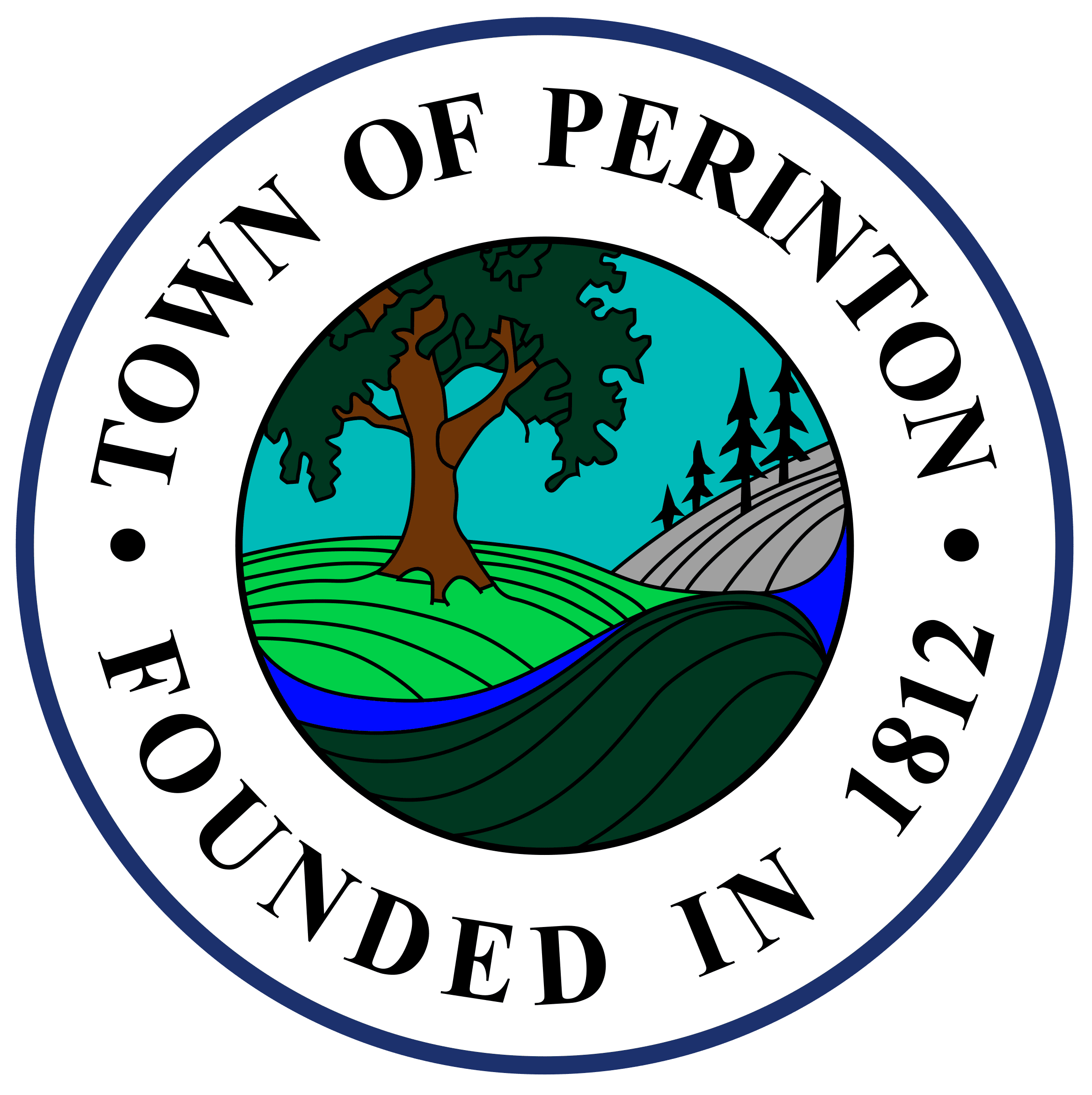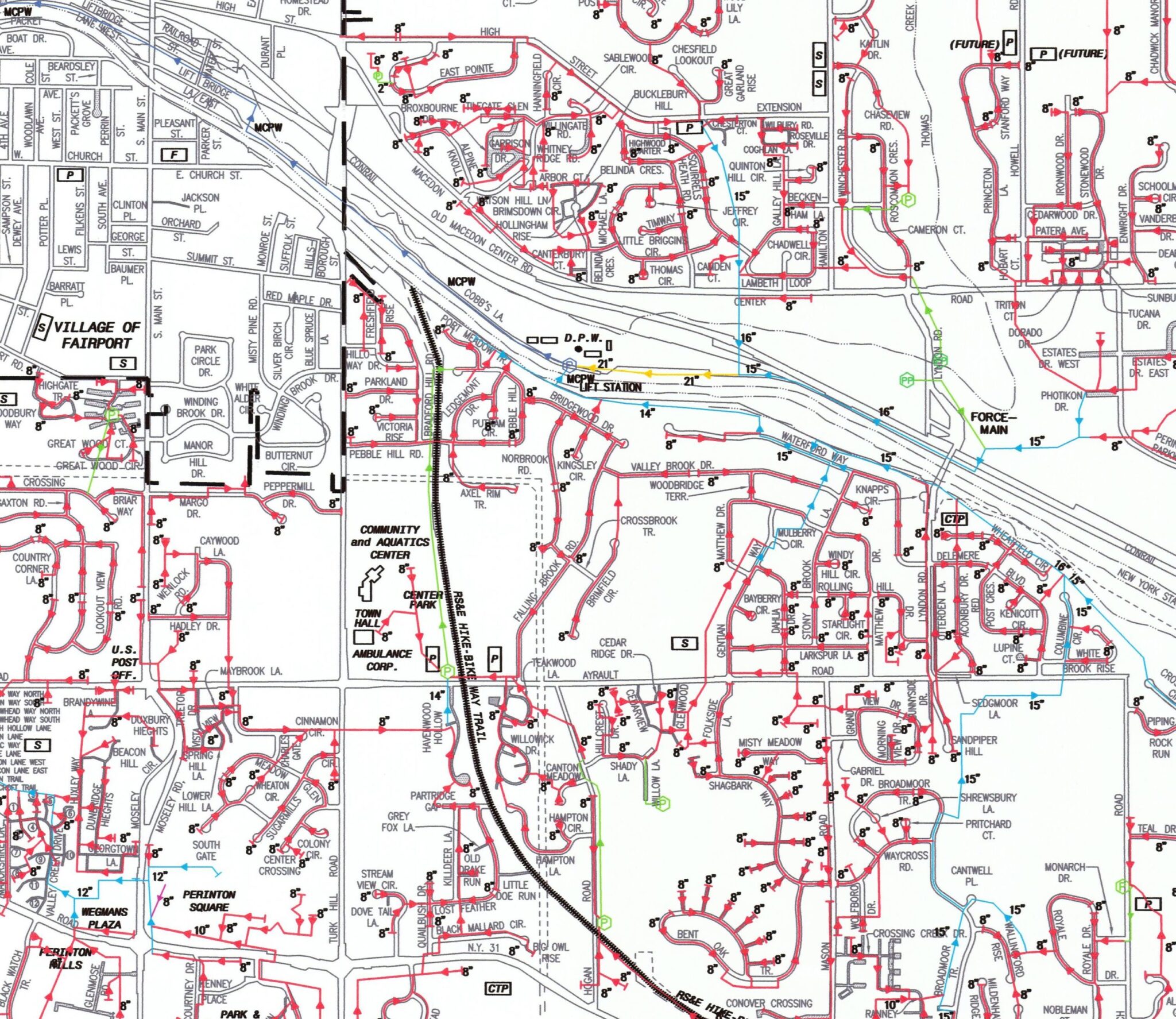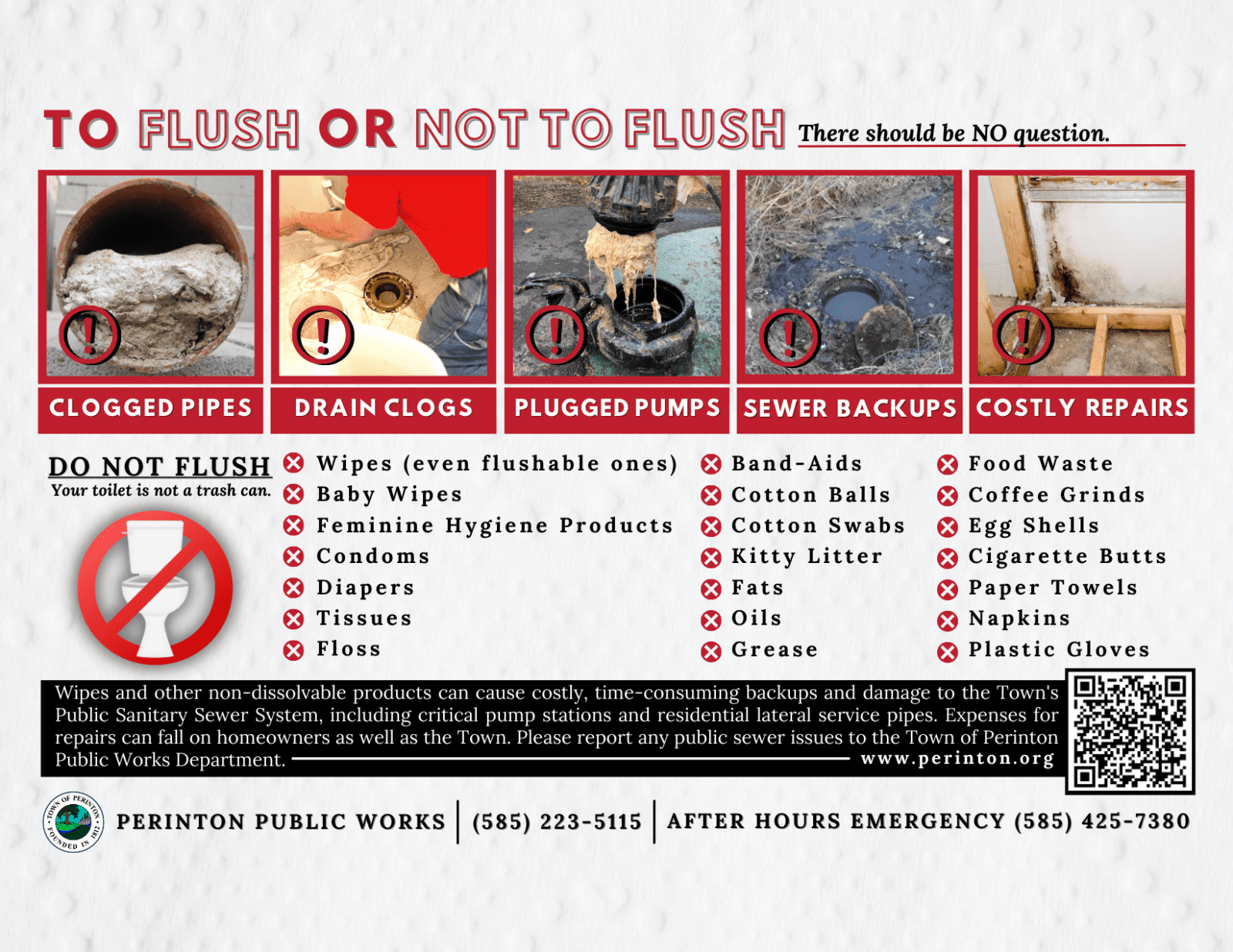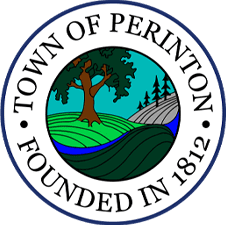Sanitary Sewer District
Under the direction of the Town Board, the Perinton Consolidated Sewer District (P.C.S.D.) operates approximately 184 miles of public sanitary sewer mains, 3,500 sanitary manholes, and 29 pump stations, which serve approximately 18,000 residential and commercial properties throughout Town. Perinton’s sanitary system collects and conveys sanitary sewage to a series of “interceptor sewers” owned by Monroe County. These interceptor sewers ultimately discharge to the Frank E. VanLare Wastewater Treatment Plant on the south shore of Lake Ontario in the Town of Irondequoit, where the sanitary effluent is treated.
In addition, the Perinton Sewer Department actively reviews the design and inspects the construction of new utilities as well as assists in the planning of future capital needs of the Town’s sanitary sewer system. Crews are also available 24 / 7 for emergency service and repair of the Town’s sanitary sewer system and are available through DigSafelyNY to assist in the location of town-owned underground utilities.
Any plumbing contractor, person, or business conducting sewer installation, alteration, or repair work in the Town of Perinton must first obtain a Sewer Permit from the Building & Code Department, (585)223-0770 or email: building@perinton.org. Those not connected to Perinton’s sanitary sewer system utilize privately owned septic systems that are under the jurisdiction of the Monroe County Health Department.
Please use the contact information below for additional details regarding sewer availability, permit need, construction/installation standards, inspections or other related issues OR check out our Frequently Asked Questions below for answers to those more commonly asked questions.
Frequently Asked Questions
Contact Information
Email: Sewer Department
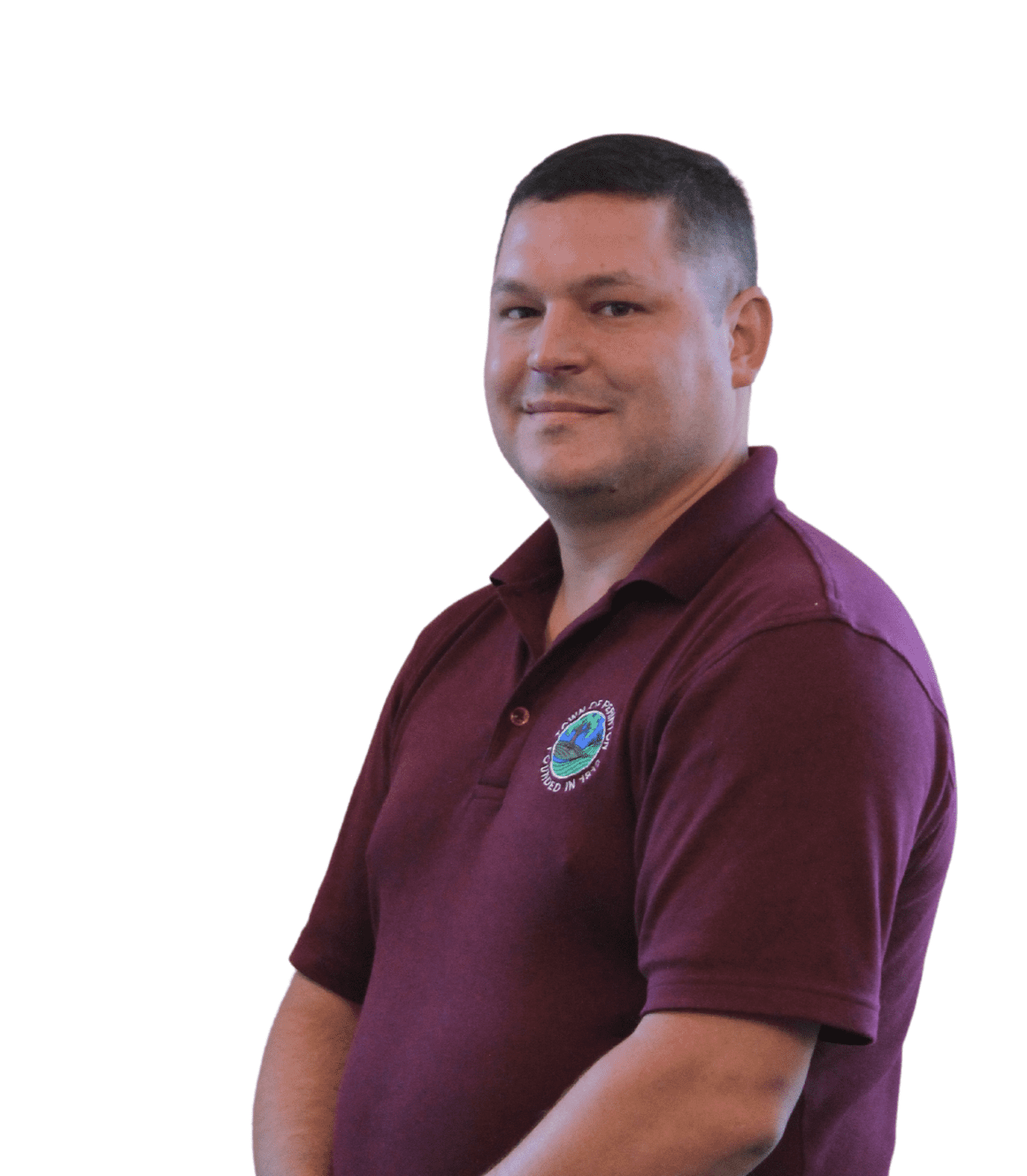
Perry L. Stolt
Deputy Commissioner of Public Works – Sewers
Business Hours: Monday – Friday 7:30am to 4:00pm
Phone: (585) 223-5115 Fax: (585) 223-0448
After Hours Contact: (585) 425-738
